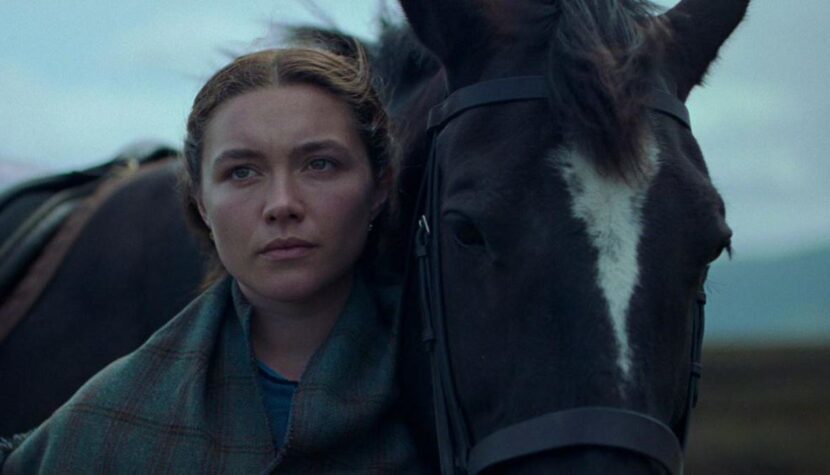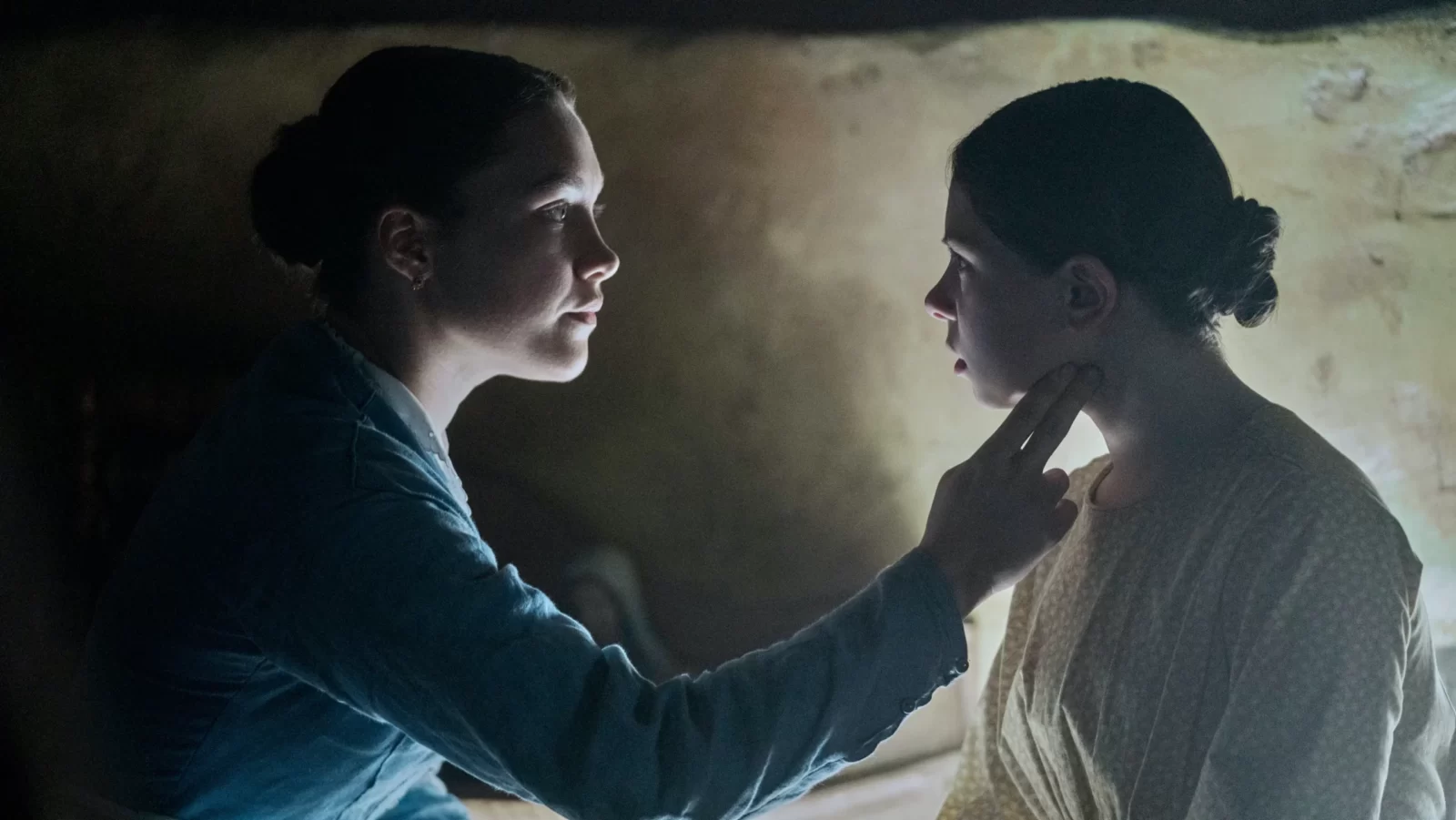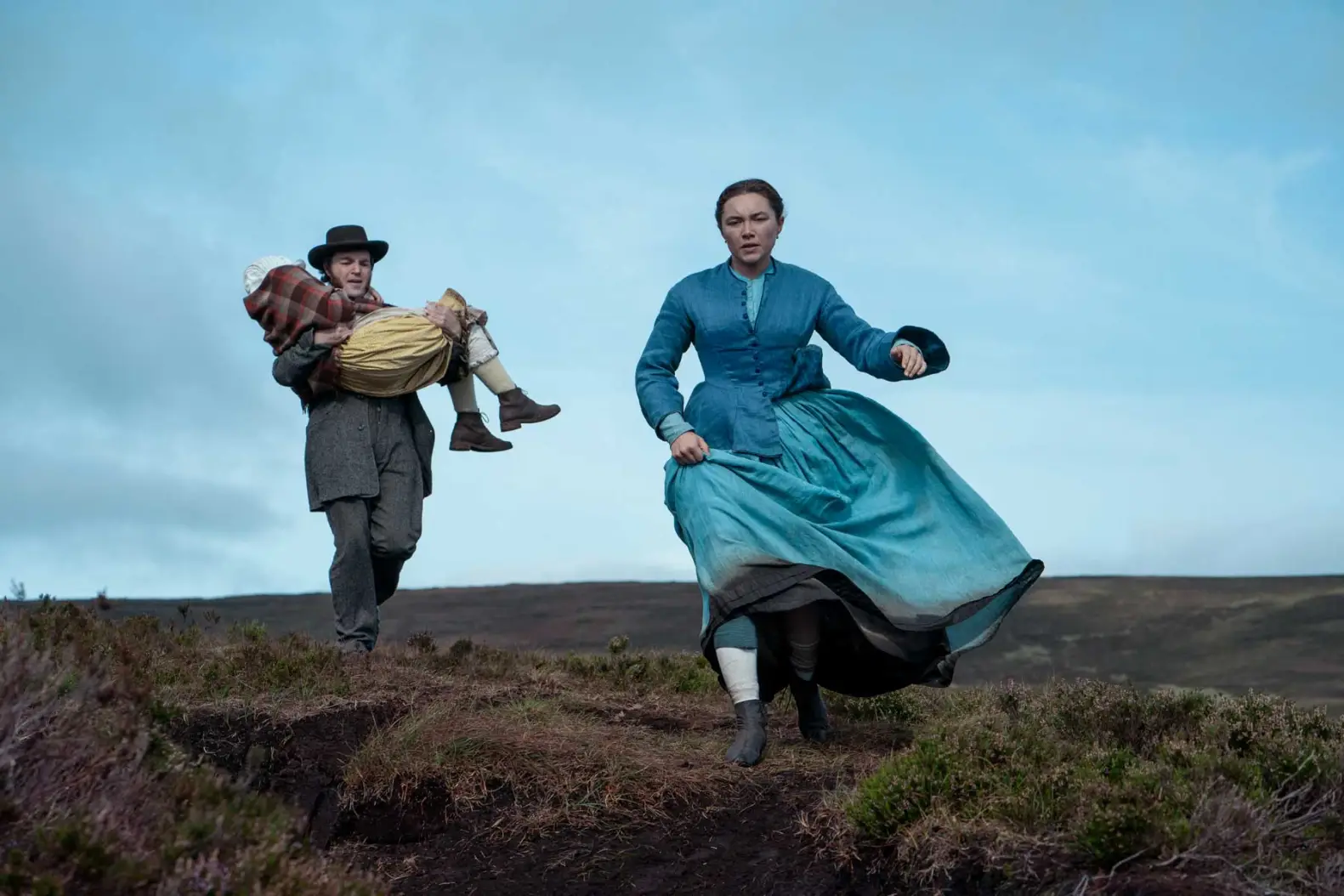WONDER. Florence Pugh shines in “The Exorcist” reversed

From the first minutes, Wonder, Sebastián Lelio’s latest film, seemed to me to be a sort of The Exorcist reversed. English nurse Elizabeth Wright (another excellent role by Florence Pugh) arrives in the Irish countryside to hold a vigil for 11-year-old Anna O’Donnell (an outstanding Kíla Lord Cassidy), who is considered a saint by the local community. Why? That’s what Sister Wright finds out on the spot, and one of her tasks is to confirm or disprove little Anna’s sainthood.
Wonder begins like a European Western: a woman dressed almost like a Wild West pioneer arrives in a provincial town with a special mission, which quickly turns into a private investigation of the main character. When she meets the O’Donnell family, she immediately realizes that religion is their – quite literally – most nourishing food. And it is this that eleven-year-old Anna seems to feed on, whom Elizabeth, an English nurse with war experience, is hired to watch. The painfully rational nurse is tasked for two weeks to watch the functioning of the devoted teenager, who treats her fasting as the most sacred gift to the Creator. Nurse Wright, for whom it is the patient’s health that is the greatest sanctity, remains skeptical of the “miracle” she has come to observe, but with each passing hour spent with the spirited Anna, she begins to doubt her rational basis.

The Chilean Academy Award winner for A Fantastic Woman proves once again that he knows how to talk about women like few others. Singularity juxtaposes representatives of two worlds: reason (Elizabeth) and faith (Anna), but regardless of the ideals guiding them, both heroines are first and foremost – or are yet to become – women, and this carries an incredible social weight. Sister Wright, despite her vast experience, is treated almost like a servant by the committee that employs her (composed, by the way, exclusively of men), and her medical training and accumulated wartime practice in no way puts her on a par with the men who pay for her services. Also, Anna, whom everyone in the town wants to consider a saint, remains under the full control of the local patriarchy, headed by Dr. McBrearty (Toby Jones) and Pastor Thaddeus (Ciarán Hinds), and her importance in the O’Donnell family is inextricably linked to her older brother. It’s a bit of a surprise that journalist Will Byrne (Tom Burke) will play an important positive role in this explicitly anti-patriarchal story, but this is more like the exception that proves the rule.

Wonder is entirely immersed in the aura of religious mysticism that often characterizes horror cinema. Lelio’s film, however, is closer to a psychological thriller, in which the life of an 11-year-old girl, blinded by the religion instilled in her, is at stake. The Chilean director is far from critical of orthodox faith, but he doesn’t turn the camera away when he brings up what religious fanaticism can lead to. In Wonder, it is not faith that is the threat, but how it can be used, including to condemn others. I don’t know if this was Sebastián Lelio’s goal, but his latest work makes it clear that behind every saint elevated to the altars there may have been someone else’s harm, which was the bitter price of supposed sanctity.
Florence Pugh in the role of Sister Wright creates a complex heroine with a difficult past, boasting an unwavering sense of morality. Her struggle for Anna’s life and health is lined with a maternal concern that has us rooting for her mission from the beginning to almost the very end. Almost, because in the finale of Wonder Lelio decides to sow a seed of doubt in us. What does the director make us doubt? That is for each of you to find out for yourself.

